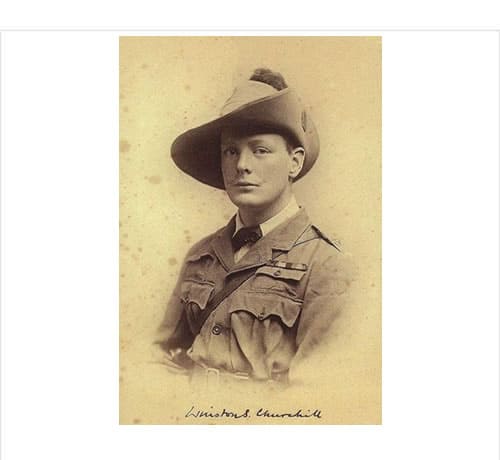During the Boer War Churchill was employed as a war correspondent for the ‘Morning Post’ On November 15, the Boers captured Churchill and threw him into a POW camp in Pretoria.
Immediately, he began closely monitoring the guards and realized that there was a gap in their routine when no one was watching the 10-ft. wall surrounding his building.
So, Churchill decided to make a break for it. But first, he needed to settle some accounts. Being the gentleman that he was, he paid his bill with the Boer shopkeeper who’d sold him tobacco, and he wrote a note of thanks and apology to the Boer Minister of War, who’d also befriended him. Then he scaled the wall.
Upon escaping, Churchill ran to a nearby villa, where he waited until he was able to hop on a passing train. For several more days, he followed the rail lines, sleeping in ditches, stealing food where he could, and fishing newspapers out of trash bins to read about the manhunt pursuing him.
Six days later, Churchill made the last leg of his journey when he crept onto a train headed for the Portuguese colony at Delagoa Bay. The ride took him 250 miles east to the Mozambique coast, where he crossed the border into freedom.
He then rejoined General Sir Redvers Buller’s army on its march to relieve the Siege of Ladysmith. Although continuing as a war correspondent, he also obtained a commission in the South African Light Horse Regiment and was among the first British troops into Ladysmith and Pretoria.
Churchill’s exploits in South Africa made him something of a national hero.


